Conversations...with actor, Kenneth Welsh.
- Lindsey Bowden
- Mar 21, 2021
- 10 min read
Updated: Jan 22, 2022

Kenneth Welsh is one of those actors who just never stops working, and chances are you have seen him pop up in films such as The Day After Tomorrow, The Aviator or The Art of the Steal or maybe you caught his appearance in TV shows, among others Lodge 49, Star Trek: Discovery or his career defining portrayal of the evil Windom Earle in Twin Peaks.
Originally from Edmonton in Canada, Ken, 78, now resides just outside Toronto, is still working heavily as an actor, and enjoys looking at trees outside his window whilst in the tub!
Lindsey Bowden (LB)
Hi Ken, thanks so much for taking the time to chat! How are you over there?
Kenneth Welsh (KW)
I’m very well, how are you over there?
LB
I’m good, still in lockdown madness, are you still in lockdown?
KW
Nothing has changed for me over here really. I sit at home all the time anyway you know. It’s just when I go shopping, I wear a mask now! I guess that’s the way it’s going to be from now on.
LB
I think it may be yes! So, let’s talk a little bit about your start in acting, did you know from a young age you wanted to be an actor?
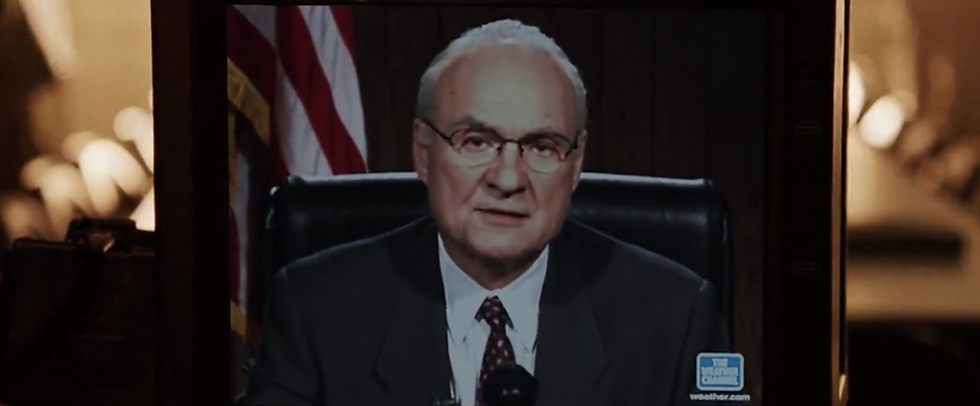
KW
Well I think when I was a kid I was always a bit of a show off in the class, I remember one of my school report cards said, “Kenneth has got to settle down and stop disturbing the class”, so they moved me up into the next grade to get rid of me. I also used to entertain my relatives at home and imitate Elvis, I guess I was always a bit of a player. I also had a girlfriend who said I should take this drama course, she said it was a real easy course and she could sell me the textbook half price. So, I thought what the hell, and I took this drama course in Grade 11. The teacher was into really interesting plays, we did this Chinese play called the Yellow Jacket and a German expressionist play called No More Peace, and I thought “this looks like fun”. I remember I suddenly got this feeling when it became time for me to choose what to study at University. I always thought I would go into engineering, but when it came time to tick the form, I saw the option of Bachelor of Arts in Drama, and I just thought, “yeah” and that was it.
LB
Yes, it’s definitely a feeling. I knew at a young age I wanted to act and that feeling has never gone away, that bug has never left.
KW
No exactly, as soon as I did that play Yellow Jacket, I had no lines and had to move props and throw snow on the young lovers. I got my first laugh and that was it. As soon as I heard the audience laugh at something I did, something stirred within me.
LB
I completely understand that.
KW
And from then on throughout my career, I always tried making something funny, even if it wasn’t! Like when I played Macbeth, I tried to get laughs and failed. Apparently Peter O’Toole did it though.
LB
Yes, I can imagine that! So, let’s just touch on your training. You attended The University of Alberta and then went on to the National Theatre school in Montréal and I believe you studied Stanislavksy too. Do you feel your training gave you the tools you needed to head out into the unemployed actor business?
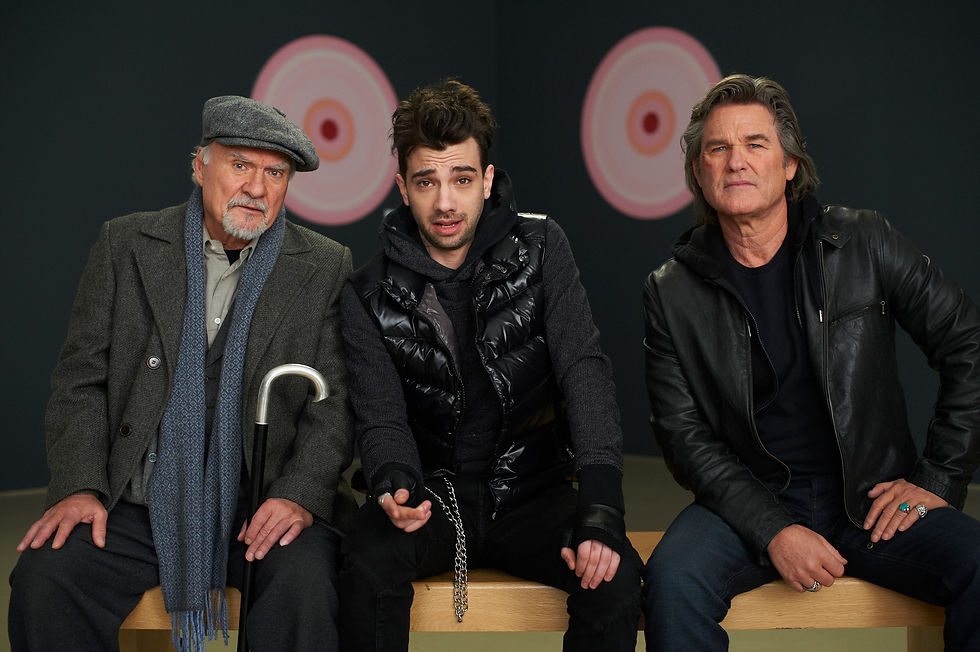
KW
Well, yes. The training I got at the University of Alberta was the Stanislavsky training. There happened to be this teacher there called Gordon Peacock who was trained in teaching the method, which is very hard to do. Not many people can really teach it. They can pretend to, but Gordon had the ability to look at you doing a scene and know when you were being truthful and when you weren’t. The Stanislavsky system is based on truth in acting and making a character real in bringing it to life. So, there was this inside of me and then there was this new school called the National Theatre School, it had only existed for 2 years at this time, and this was a totally different world full of speech classes, movement training and some classical theatre. So, it was more of a physical training. They also bought in outside directors to work with you who would maybe give you a chance to audition for them outside the school, like we had John Hirsch come in and tell us none of us would be actors, but I auditioned for him at Stratford (Shakespeare Festival in Canada), and he remembered me from the NTS and cast me. 2 years after I left school, I was playing Hamlet!
LB
Speaking of your love of Shakespeare, I’ve seen you performing online, and also in London (for the Twin Peaks UK Festival in 2019), you often quoted lines in conversation. Was it this experience at the Stratford Festival that started your love of Shakespeare?
KW
No, no, this love of Shakespeare started, actually through another teacher, Miss Malloy, and we were studying Hamlet. I began to spend more time in my home town library, and they had this big collection of records on record (vinyl), and I would go and get something, always from Britain, and one of my favourites was A Midsummer Night’s Dream with Stanley Holloway playing Bottom, and I fell in love with it, with the way that Shakespeare was spoken by these wonderful actors, and it was so funny, and I just thought “this is great stuff”! I just never stopped loving it.
LB
I’m also a big Shakespeare fan and I actually worked with the Royal Shakespeare Company back in 2008 which is where I met David Warner, who attended the Twin Peaks UK Festival in 2019 with you.
KW
Yes David! Well David and I actually played Hamlet at the same time. He was playing it in London, I think, while I was playing it at the Stratford Festival, this was in 1969 which was a very key time to be playing that role. There was a lot of revolution going on at the time.
LB
Ken, your career, if I’m right in saying so, has spanned 50 years now?
KW
Probably more than that Lindsey, probably more like 57.
LB
Incredible!
KW
Yeah, and it’s still going!
LB
I know! You’re just too good! From what I can see you’ve steadily been in work for most of that?
KW
I would say so yeah.
LB
And you are quite well known for playing many historical figures, Harry S. Truman, Thomas Edison and Thomas E. Dewey to name a few. Do you find there is a different approach in bringing a real-life character back to life than creating one?
KW
Oh yes. I would always go and find out as much as I could about the character, and there are volumes available on people like Harry Truman, and then you try and bring whatever you feel in relevant about that person to this particular story. And also, you want to be like that person. In that case (Harry S. Truman), they made me up to look like him, but you have to be careful to not make a caricature of it. I’ve seen it both ways when actors go so far, but you have to think ‘what is the motivation?’ What is it that the character is thinking about? You have to deeper rather than just looking like the person. I did this film called The Bruce Curtis Story about this kid, Bruce Curtis who wound up being convicted for his friends’ parents murder. I was playing the defence lawyer and I discovered the real lawyer was still alive and living in New Jersey. So, I arranged to meet him, as I was living in New York at the time. I talked to him about the script and the trial, about whether he thought the kid was guilty, and I showed him the speech which he was supposed to have said at the trial. He looked and said “yeah, but they left out some things that were said to the judge”. So, I took it back to the director of the film and he put the extra words in the script. So, you see, it can make a real difference to the film, and in that case I recorded him, and did his real New Jersey dialect, which was fun!
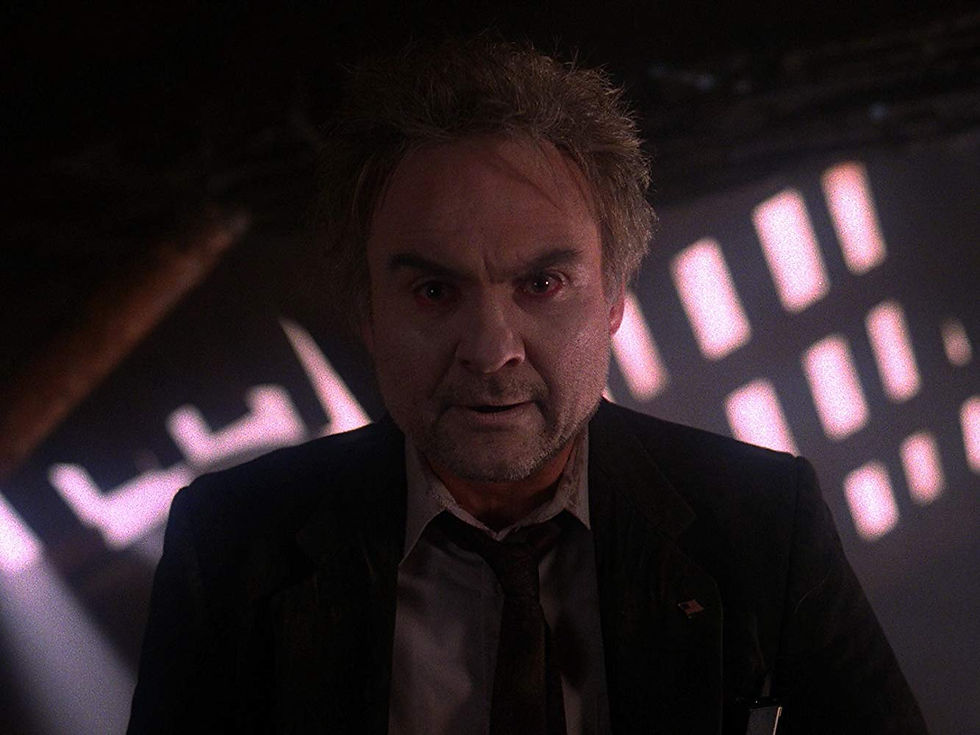
LB
That’s so wonderful because often, when you’re portraying real life characters, they’ve often passed away. So to have them alive and be able to observe them is great. But of course, we can’t chat without mentioning your most famous role, Windom Earle in Twin Peaks, and of course it’s through Windom that you and I are friends. So, I’d like to talk a little about that process of you becoming Windom and the character you created, and how much of your own personality, knowing you as I do, is in Windom Earle?
KW
Well, I was in Los Angeles shooting a TV movie, and chatting to my ex-wife who is still a dear friend, and she told me Bob Engels was writing for this new show Twin Peaks. I know Bob from the early 70’s so I gave him a call to see how he was doing, and he told me about the show and that there may be a part for me in it. He invited me to the set, and I met Mark Frost, David Lynch was not there, I met a few more people and after an hour Bob said “`let’s do it, your character will come on in two weeks!”. Next thing I know, I’m flying down to LA! It’s very kind of Twin Peaksian don’t you think?
LB
Yeah, it’s very quick! But they obviously saw something in you.
KW
Well, yeah, Bob knew me very well. He said “Ken, he’s (Windom) like this playful character who has this classical theatre thing going on as well”. Windom seems to be this evil character, he can’t help it, but there’s a playfulness in Windom that I liked to embody, an edge of humour with an ironic twist, and also, his ability to disguise himself so fully that he’s actually proud of himself, as I would be too. He liked to fool you with different ways of presenting a character, the dialect or movement, or ways of speaking; it was like my own kind of crazy ways as an actor and the ways I explore that bought me to this character in the way that it did. I don’t relate to his evil side at all of course.
LB
No, of course.
KW
No, no, no. (Grins)
LB
But even though Windom was evil, and brilliant, there was something really loveable about him as well. Whether it was his theatricality, or whether it was his humour, people were almost slightly rooting for him. He was really enthralling to watch.
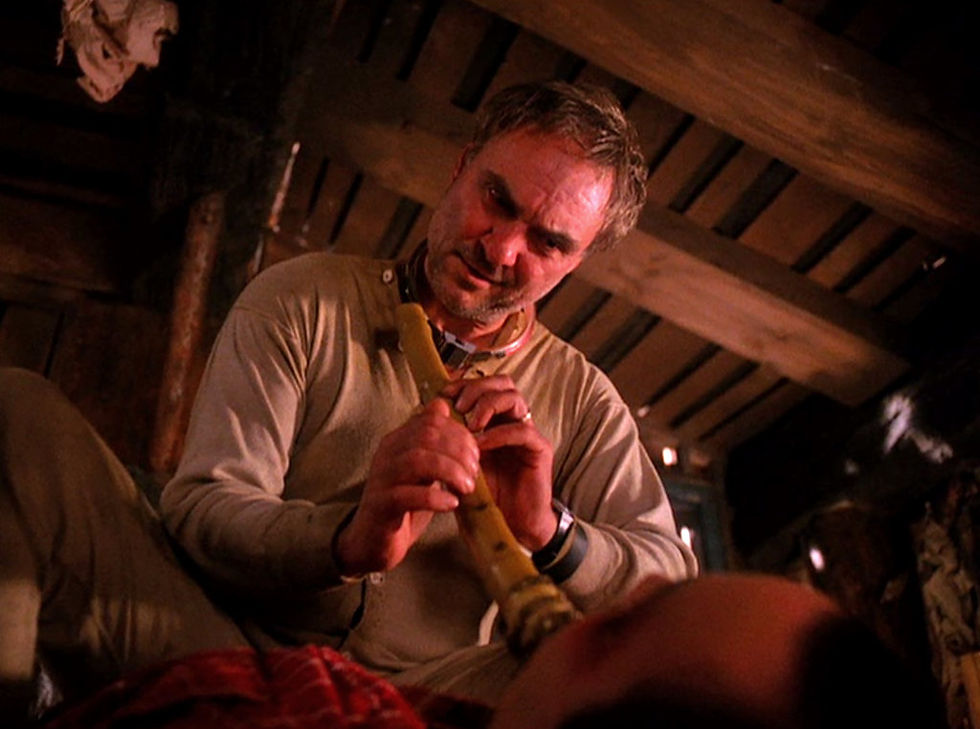
KW
Well, as you know, that’s what you do when you have a character like that. You don’t play the evil side, you try to find the good side of it. You see his point of view, and when I looked at his point of view, I saw a guy who had suffered. He thought Cooper was responsible for the death of his wife, and he had this motivation that he thought was quite strong and it was justifiable what he was doing. He had a hard life and had a lot of emotional pain, and he wanted to unravel that pain. One way to do that was to put on a mask, and hide it, and go about his business in pursuing Cooper, but with a touch of humour and irony.
LB
Yep, it was fun to him, game.
KW
Yes, a game, he enjoyed the game.
LB
And I think that’s why the performance became legendary, because you understood him and played his truth.
KW
I felt like that’s what I was trying to do yes.
LB
You have been quoted as saying that the only other role you have enjoyed playing as much as Windom Earle is your recent part of Larry Loomis in Lodge 49. Did you draw on any of Windom’s influence for Larry?
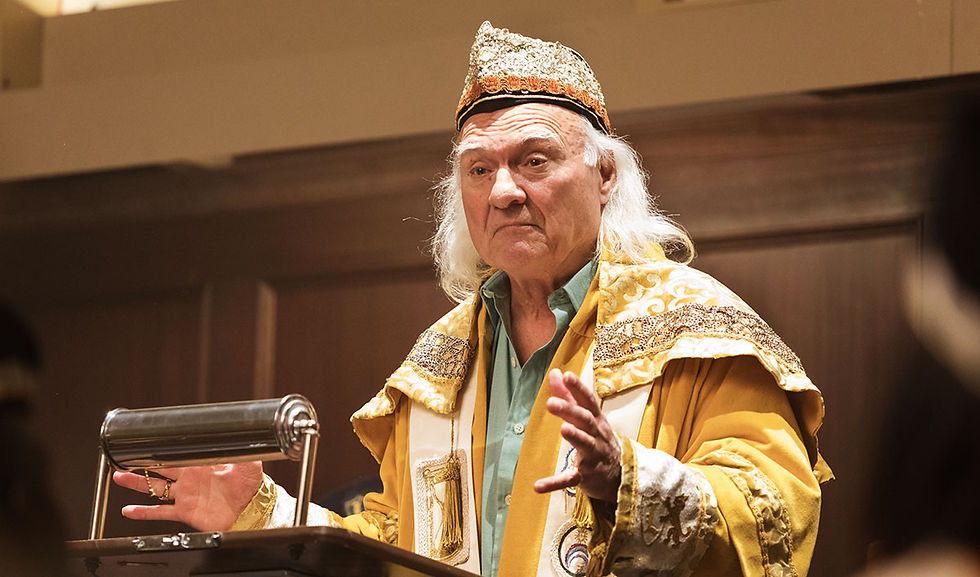
KW
Yes. I’ve enjoyed most of the roles I’ve played but these two are, I guess, in the same gallery. I think I did draw on Windom for Larry as they are both outsiders. They are on the outside looking in, and Larry had a background involving his mother and how she left him and ran off with another guy who happened to be head of the Lodge. So emotionally, in the same way, Larry turned this into a craziness, and his behaviour could be interpreted as looney, humorous and just on the edge of sadness. He had nobody in his life, like Windom had nobody in his life, so Larry was like a loner, which is why his friendship with Ernie was so important to him. I just loved playing him, and the way that he died, I just loved it. I like it when there’s a depth of loneliness to a character. I don’t know why. Maybe I experienced that when I was younger. That’s what I see in these two guys, this interesting loneliness which is never really expressed except in being like a clown, or being a bit of an oddball, outside of the society that they are living in, and looking in on it with a kind of weird observation. So yeah, they were in the same depth for me.
LB
So, throughout your career do you still consciously apply your Stanislavsky training to your roles, or have you moved away from that?
KW
Oh no, I still go to the same source. Actors put things away as you know, you feel something, and you think “I’m going to keep that and use it one day”. You just keep building as you go through your life, so now I just draw on whatever experience I have. It’s a lot easier now. I used to get quite anxious but now I just go and do it.
LB
So, the one thing that I love about you Ken, and bowled me over when we first met, is your amazing energy and your zest for life, it’s just wonderful. Where does that come from, what inspires you?
KW
(Laughs) I don’t know. At the festival (Twin Peaks UK Festival) I felt surrounded by people who loved me, so my innate desire to show off comes out in this crazy energy that I might be showing at the time. I was inspired originally by my father who was a very funny guy. He was a very energetic, intelligent and funny guy. They were times in my life where I went through some pretty depressing experiences and getting past that and realising how wonderful and valuable life can be if you just try and look for something that can bring you outside of yourself, you know. I’m inspired by looking outside of my window now and seeing these bare trees in Winter which will soon be bearing leaves. My cat inspires me, my lovely girlfriend Lynne inspires me with her art and love, my son Devon inspires me with his talent and his ability to cope. He’s usually away singing but is home right now creating music. He does poetry and he inspires me too with the love and energy that he brings to his life and mine. This is crazy but when I’m in the tub, there’s this very old maple tree outside my window, and I look at that tree, and I see it in different aspects every time, every season, I see it in the wind or not in the wind, with leaves and without leaves, and I think “that tree has been solid for all this time, even before this house was built and this house is 150 years old”. It’s the things around me now that I get excited by, and the friends I have and the people around me.
LB
Ken thank you so much for taking the time to chat with me. It’s been wonderful.
Watch our full interview on YouTube for more questions, fun and insights!
Follow Kenneth Welsh on Twitter @kenwelsh11
Follow Lindsey Bowden on Twitter @lindseybowden76 and Instagram @lindseybowden76

























Comments